The PlaySpace (PS) editorial team now calls for new submissions dedicated to artistic research focusing on decolonization.
Manifesto
PS sees the development of language as an important prerequisite for knowledge transfer, and believe artistic research has great potential in developing its own syntax, adapted to its evolving needs. PS therefore invites submissions based on both known and unknown forms of writing – from scientific papers to transcribed conversations and poetry – urging its writers to play with words, play with media, and play with research.
We wish to be inclusive, stylistically non-discriminative, and here refer to artistic research in the widest sense. This means that we encourage submissions from all forms of artistic- and practice-related research, such as new musicology, performance research, artistic practice, arts-based research, practice as research, performance research, practice-infused research, as well as other AR-offshoots, and interdisciplinary approaches.
Our scientific journal in Artistic research, PlaySpace is soon out with a new issue, but we are already sharing our article and photo reportage from Yemen. Play Space is delighted and fortunate to have contributions from free city artist and award-winning Yemeni photojournalist Hayat Al-Sharif in the next issue of the magazine. From 21 September until the end of October, you can see these and more of Hayat Al-Sharif's photographs at an exhibition in Byparken in Stavanger.
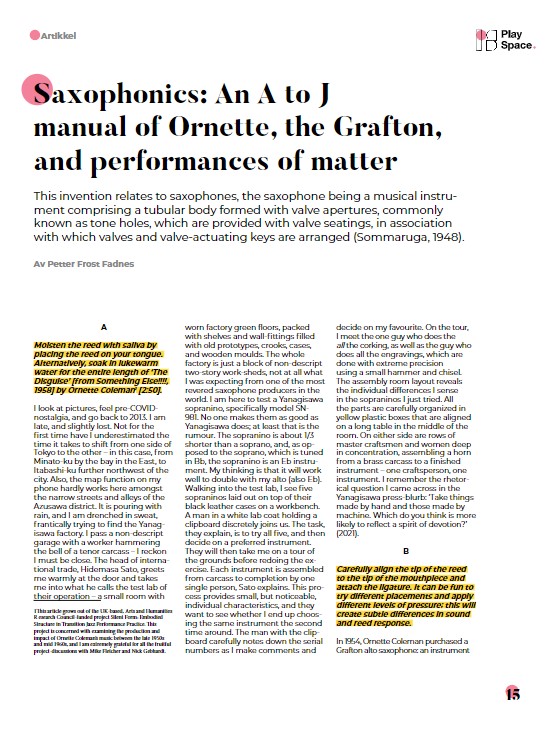

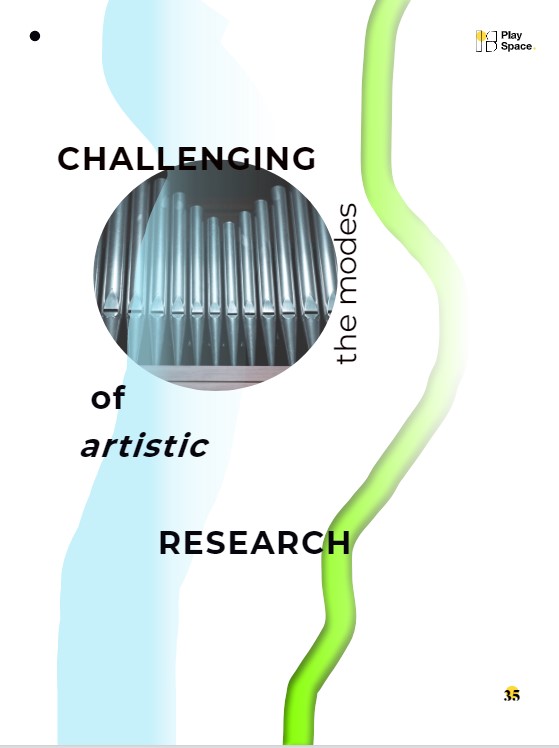
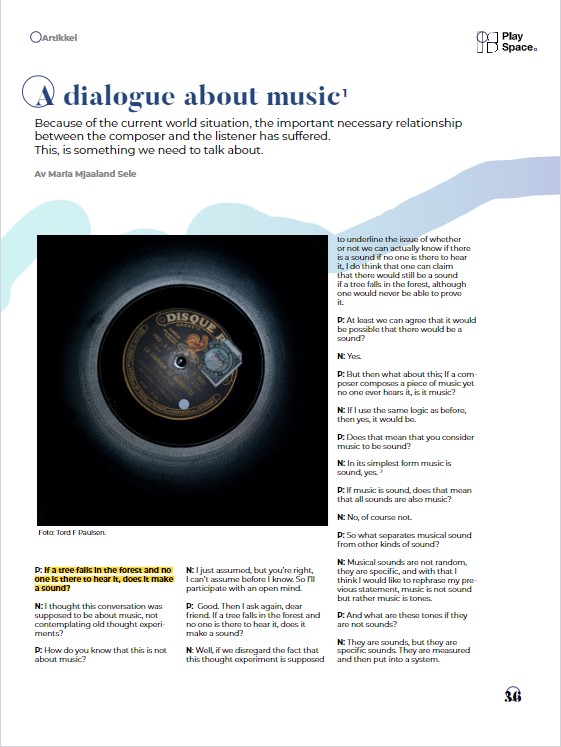

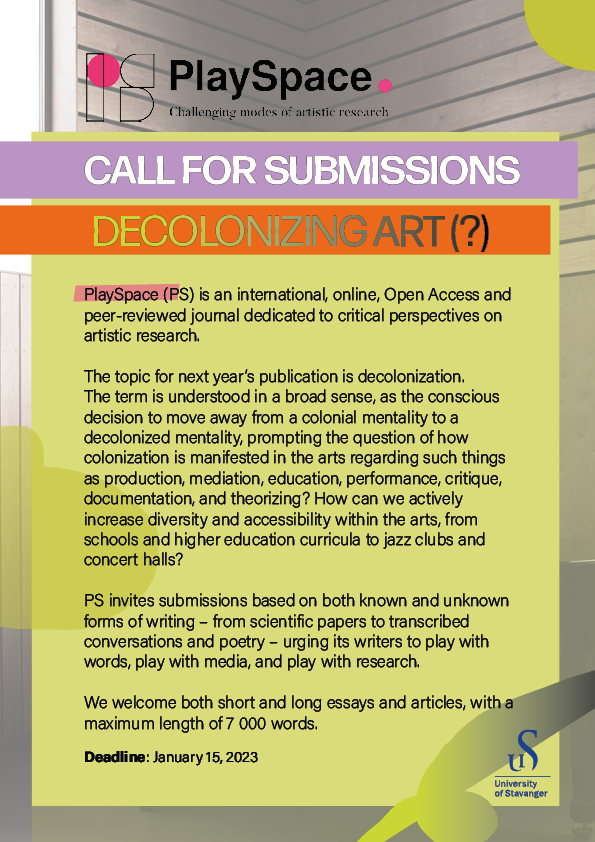
Open call Fall 2022 - Theme II
The topic for next year’s publication is decolonization. The term is understood in a broad sense, as the conscious decision to move away from a colonial mentality to a decolonized mentality, prompting the question of how colonization is manifested in the arts regarding such things as production, mediation, education, performance, critique, documentation, and theorizing? Are we ‘colonized’ to think and act in specific ways? What initiatives could be launched to decolonize power? How can we actively increase diversity and accessibility within the arts, from schools and higher education curricula to jazz clubs and concert halls? Beyond power, diversity and inclusion, other key concepts might include aesthetic standardization, ethnicity, gender, body image, diaspora, representation, appropriation, policy, technology, economics, and forms of stereotyping.
We're waiting for your contribution!
We welcome both short and long essays and articles, with a maximum length of 7 000 words. In addition to scholarly written essays and articles, we also welcome book reviews, concert reviews etc. and new formats, such as videos, film, visual essays, conversations, and other formats in the visual arts. We encourage submissions from all forms of artistic- and practice-related research, such as new musicology, performance research, artistic practice, arts-based research, practice as research, performance research, practice-infused research, and other AR-offshoots. The journal accepts articles in Norwegian, Swedish, Danish or English.
Peer-review
PS is a single-blind, peer-reviewed journal, in which two external referees are picked from the journal’s extensive panel of experts. The nature of refereeing within the field of artistic research is a topic of continuing debate; nationally and internationally. The controversy is not necessarily about whether the artistic outputs can be assessed – few fields are more critiqued, scrutinized, and commercially valued than the arts – but rather whether different outputs (with different sets of values) may be comparably equalled within the same system; and in this case the same journal. PS believes the following review process systematizes a set of values crucial to artistic research, which both incorporates artistic critique sensitive to the individual outputs (as developed within the different artforms), as well as underlining a set of research criteria which contributes towards lifting the work into academia as well.
How to submit
Register and upload your submission to PlaySpace at the OJS platform on: https://journals.uis.no
Contact: playspace@uis.no
Theme I - Spring 2022
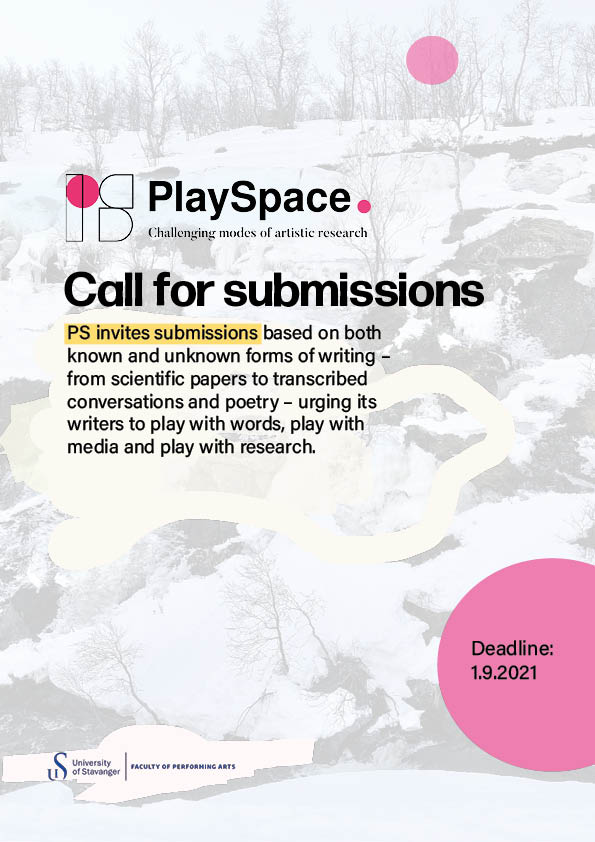
Our first call for submissions took place in the middle of the covid-19 pandemic and therefore revolved around this topic. We wished to pursue central questions with regards to the conditions of our art scenes, and look at what solutions have been implemented in order to weather lockdown restrictions, tightly controlled performances and lack of liveness, as well as closed borders, digital platforms and physical distance. How did the crisis affecting musicians, dancers and artists involved in producing and diffusing music, dance and art? How do musicians and other cultural workers manage a crisis at an individual and/or collective level? Which new emerging energies, initiatives, platforms, and creative forms have arisen, and how has your working situation changed and been affected by the current pandemic? What might the long-term effect of this be, and what is left at the other end?